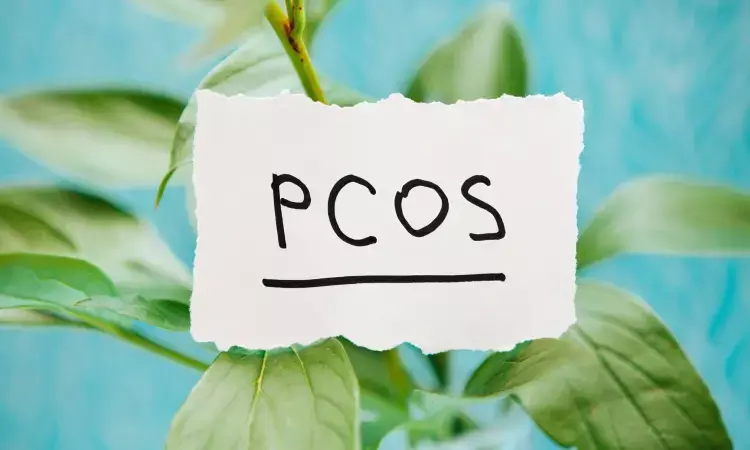- Home
- Medical news & Guidelines
- Anesthesiology
- Cardiology and CTVS
- Critical Care
- Dentistry
- Dermatology
- Diabetes and Endocrinology
- ENT
- Gastroenterology
- Medicine
- Nephrology
- Neurology
- Obstretics-Gynaecology
- Oncology
- Ophthalmology
- Orthopaedics
- Pediatrics-Neonatology
- Psychiatry
- Pulmonology
- Radiology
- Surgery
- Urology
- Laboratory Medicine
- Diet
- Nursing
- Paramedical
- Physiotherapy
- Health news
- Fact Check
- Bone Health Fact Check
- Brain Health Fact Check
- Cancer Related Fact Check
- Child Care Fact Check
- Dental and oral health fact check
- Diabetes and metabolic health fact check
- Diet and Nutrition Fact Check
- Eye and ENT Care Fact Check
- Fitness fact check
- Gut health fact check
- Heart health fact check
- Kidney health fact check
- Medical education fact check
- Men's health fact check
- Respiratory fact check
- Skin and hair care fact check
- Vaccine and Immunization fact check
- Women's health fact check
- AYUSH
- State News
- Andaman and Nicobar Islands
- Andhra Pradesh
- Arunachal Pradesh
- Assam
- Bihar
- Chandigarh
- Chattisgarh
- Dadra and Nagar Haveli
- Daman and Diu
- Delhi
- Goa
- Gujarat
- Haryana
- Himachal Pradesh
- Jammu & Kashmir
- Jharkhand
- Karnataka
- Kerala
- Ladakh
- Lakshadweep
- Madhya Pradesh
- Maharashtra
- Manipur
- Meghalaya
- Mizoram
- Nagaland
- Odisha
- Puducherry
- Punjab
- Rajasthan
- Sikkim
- Tamil Nadu
- Telangana
- Tripura
- Uttar Pradesh
- Uttrakhand
- West Bengal
- Medical Education
- Industry
Can oral contraceptives improve Taste function in women with PCOS?

A new study has revealed that taste perception is impaired in patients with Polycystic ovary syndrome (PCOS), and that short-term oral contraceptive (OC) usage has no effect on taste functioning in the disease.
This study was conducted by Sila Cetik and team and the findings of this study were published in Journal of Appetite.
PCOS is the most prevalent endocrine illness in women of reproductive age, and it is connected with eating disorders and disordered eating. There is no evidence on taste function in women with PCOS. The purpose of this study was to compare taste function and eating behavior in PCOS patients to healthy women, and to look into the potential influence of OC use on those.
For this study Forty-four PCOS patients and 36 age and BMI-matched healthy controls were included in the study. Taste strips (sweet, sour, salty, bitter) and the Food Cravings Questionnaire-Trait (FCQ-T), Night Eating Questionnaire (NEQ), and Three Factor Eating Questionnaire-R18 (TFEQ-R18) were used to measure gustatory function. All measures were redone in patients three months after getting an OC and general lifestyle counseling.
The key findings of this study are as follows:
1. The PCOS group exhibited lower total taste strip test (TST) scores at baseline than the controls (11.7 2.2 vs. 13.1 1.4; p = 0.001).
2. Subgroup analysis revealed that the PCOS group had lower sour and salty taste scores (2.4 0.9 vs. 2.9 0.7; p = 0.004; and 2.6 1 vs. 3.1 0.7; p = 0.01 respectively).
3. Sweet and bitter taste ratings were comparable. In terms of eating habits, no differences were discovered.
4. According to linear regression analysis, hyperandrogenism was a significant predictor of overall TST score (R2 = 0.22, p 0.001).
5. A higher free androgen index (FAI) was linked to a lower overall TST score (p = 0.01).
6. Total TST, TFEQ-R18, and NEQ scores were unchanged following treatment in the PCOS group, however FCQ-T scores decreased significantly (p = 0.02), owing mostly to a decrease in the lack of control subscale (p = 0.01).
The Author said in conclusion, "according to the findings of this study, androgen excess explains only 22% of the variation in taste perception, whereas treatment of hyperandrogenism with oral contraceptives did not result in an improvement in taste detection thresholds, implying that unmeasured factors may be involved in PCOS taste dysfunction. More research is needed to determine the probable pathways of taste impairment in PCOS".
Reference:
Cetik, S., Acikgoz, A., & Yildiz, B. O. (2022). Investigation of taste function and eating behavior in women with polycystic ovary syndrome. In Appetite (Vol. 168, p. 105776). Elsevier BV. https://doi.org/10.1016/j.appet.2021.105776
Medical Dialogues consists of a team of passionate medical/scientific writers, led by doctors and healthcare researchers. Our team efforts to bring you updated and timely news about the important happenings of the medical and healthcare sector. Our editorial team can be reached at editorial@medicaldialogues.in.
Dr Kamal Kant Kohli-MBBS, DTCD- a chest specialist with more than 30 years of practice and a flair for writing clinical articles, Dr Kamal Kant Kohli joined Medical Dialogues as a Chief Editor of Medical News. Besides writing articles, as an editor, he proofreads and verifies all the medical content published on Medical Dialogues including those coming from journals, studies,medical conferences,guidelines etc. Email: drkohli@medicaldialogues.in. Contact no. 011-43720751


